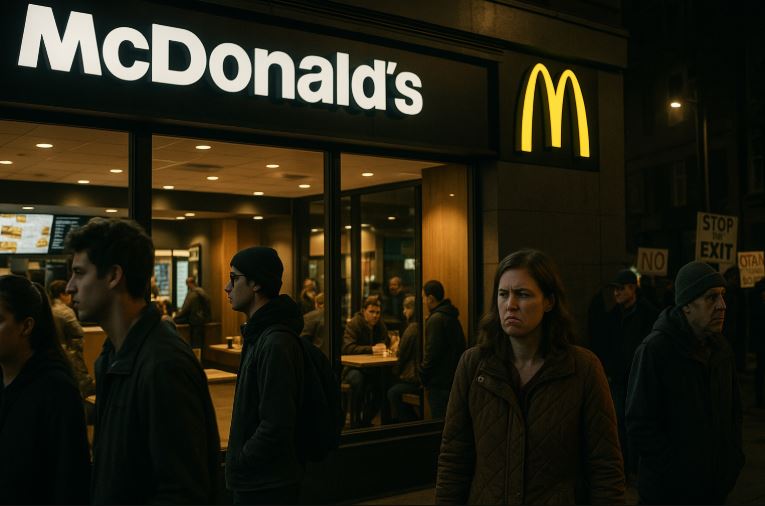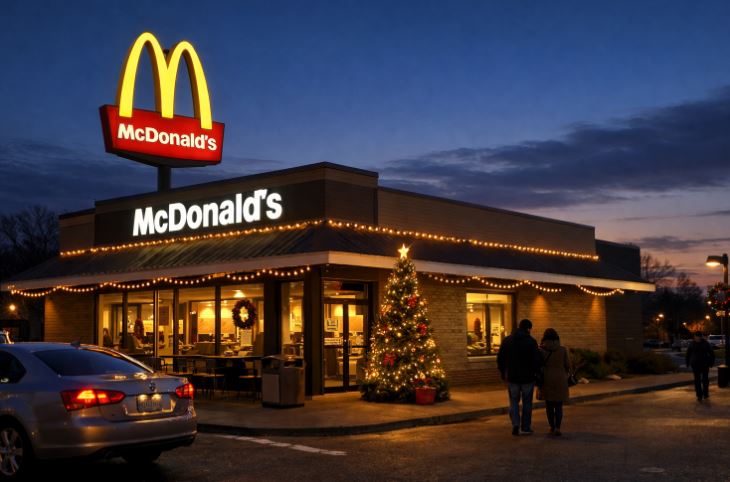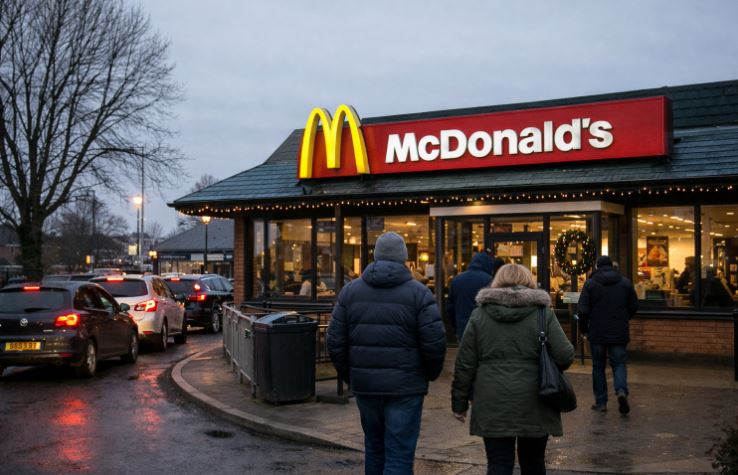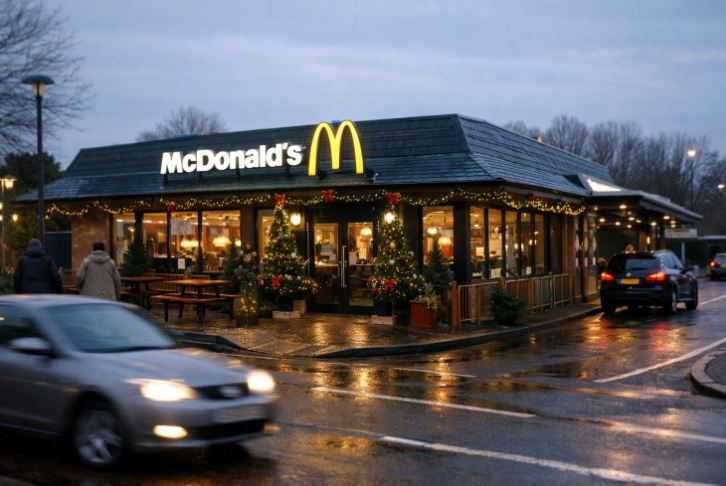For many, McDonald’s is more than just a fast-food chain. It’s a familiar name, a part of childhood memories, a quick bite on the way home, or a go-to during long road trips.
Like many others, I never imagined that grabbing a burger could ever be a political act. But in recent years, particularly in 2024 and 2025, that perception changed.
The question, does McDonald’s support Israel?, became a trending topic across news platforms and social media. For consumers, this sparked confusion, concern, and for some, a call to action.
Let’s dive deep into the events and facts that led to this global conversation.
How Did McDonald’s Get Involved in the Israel-Gaza Controversy?
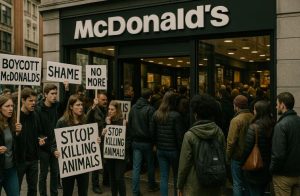
McDonald’s as a corporation found itself drawn into the heart of the Israel-Gaza conflict not through direct action, but via the decisions of its Israeli franchisee.
The controversy erupted in October 2023 when Alonyal Ltd., the company operating McDonald’s restaurants in Israel, began distributing free meals to Israeli soldiers shortly after the outbreak of the war between Israel and Hamas.
Although these actions were initiated by a local operator, the global reach of the McDonald’s brand made it difficult for the public to distinguish between the local franchisee and the parent company.
The move was seen by many, especially in Muslim-majority nations, as a political stance in favour of Israel, even though McDonald’s Corporation had not authorised such actions.
The Franchising Model Misunderstood
To understand how McDonald’s became entangled in this situation, it’s crucial to look at how the company operates globally.
McDonald’s runs on a franchising system, meaning individual business operators, like Alonyal Ltd., own and manage outlets under the McDonald’s brand.
These franchises are responsible for daily operations, marketing campaigns, and in this case, politically sensitive decisions. The corporation publicly clarified that it had no involvement in the franchisee’s offer of meals to soldiers.
Nevertheless, the public backlash was immediate and widespread, particularly in countries where public opinion strongly favoured the Palestinian cause.
Why Did the Israeli Franchisee Offer Free Meals to Soldiers?
At the core of the controversy was a decision made by Omri Padan, the CEO of Alonyal Ltd., McDonald’s sole franchisee in Israel. Padan’s company, operating for over 30 years in the region, offered free meals to the Israeli Defence Forces following the Hamas attacks in early October 2023.
This gesture was seen by many Israelis as a show of solidarity during a time of national crisis. However, internationally, it was interpreted quite differently. For communities and nations sympathetic to the Palestinian struggle, this act was viewed as McDonald’s taking a side in an ongoing and deeply divisive conflict.
Public vs Political Interpretation
While the offer may have been made in a nationalistic spirit by the franchisee, its global implications were significant. McDonald’s, as a symbol of American capitalism, quickly became a target of boycotts in numerous countries.
These boycotts weren’t merely symbolic. They resulted in significant drops in sales in several regions, especially in the Middle East and Asia.
What Was the Global Reaction to McDonald’s Perceived Support?
The reaction was swift and widespread. Social media users launched viral campaigns calling for boycotts of McDonald’s in countries like Malaysia, Pakistan, Indonesia, and Kuwait. Statements were issued by both public figures and political entities distancing themselves from the brand.
Market Consequences
In the fourth quarter of 2023, McDonald’s reported weaker-than-expected performance in its International Developmental Licensed Markets division, which includes the Middle East, India, and China.
The backlash even spread to regions where McDonald’s was not directly involved in the conflict. The perception that it was aligned with Israeli interests was enough to damage its image and affect business operations.
Consumer Sentiment and Civil Campaigns
These consumer movements were not isolated. They were part of a larger boycott initiative led by global civil society groups, particularly the Boycott, Divestment, Sanctions (BDS) movement, which called on people to stop patronising brands perceived to be supportive of Israel’s military actions.
Did McDonald’s Corporation Approve the Actions in Israel?

The McDonald’s Corporation was quick to respond once the backlash began gaining traction. It clarified through several statements that the actions taken by the Israeli franchisee were independent and not representative of the global brand or its values.
Clarification from Corporate Leadership
Chris Kempczinski, CEO of McDonald’s, referred to the public reaction as the result of misinformation. He stated that McDonald’s Corporation had no political agenda and reiterated the autonomy of franchise owners in managing their regional affairs.
Despite these clarifications, the global perception was difficult to change. In a world where brand identity and corporate ethics are closely scrutinised, McDonald’s faced challenges in separating its image from the actions of a single franchisee.
Difference Between Corporation and Franchisee Roles
| Aspect | McDonald’s Corporation | Alonyal (Israeli Franchisee) |
| Ownership | Global parent company | Locally owned and operated |
| Political Involvement | None declared | Offered free meals to Israeli forces |
| Branding | Global branding standards | Uses same branding under licence |
| Operational Control | Strategic oversight | Day-to-day control in Israel |
| Public Statements | Denied support for any side | No retraction of support actions |
How Did the Boycott Affect McDonald’s Sales and Brand Image?
The boycott had tangible consequences. In Q4 2023, sales growth in markets including the Middle East dropped significantly. For McDonald’s, this was not merely a temporary dip but a signal of long-term brand perception issues in politically sensitive regions.
Financial and Reputational Impact
- Sales growth in Middle East and Asia stood at just 0.7% for Q4 2023
- Far below expected global performance levels
- Negative media coverage in over 20 countries
Branding Crisis in a Polarised World
Reputation experts commented that even if McDonald’s regained control over its Israeli branches, the damage to brand trust had already been done. The incident became a case study in how quickly consumer sentiment can shift in response to perceived political affiliations.
Why Did McDonald’s Buy Back Its Israeli Restaurants?
In April 2024, McDonald’s made a surprise announcement: it would buy back all 225 of its restaurants in Israel from Alonyal Ltd. The move was widely seen as an attempt to take back control of the brand and minimise future risks related to political controversies.
Strategic Decision or Reputation Management?
While the financial details of the deal were not disclosed, it was clear that McDonald’s made the decision as part of a wider crisis-management strategy.
Mixed Reactions to the Buyback
Reactions were divided. Some praised the decision, suggesting it would help restore the brand’s image. Others criticised the move, arguing it allowed Omri Padan, the franchisee at the heart of the controversy, to walk away profitably.
Reasons Behind McDonald’s Buyback Decision
| Reason | Impact |
| Control over political messaging | Improved consistency in branding |
| Damage control post-boycott | Attempt to regain public trust |
| Avoid future controversies | Reduced autonomy of franchisees |
| Restore investor confidence | Sign of corporate accountability |
Does McDonald’s Still Operate in Israel Today?
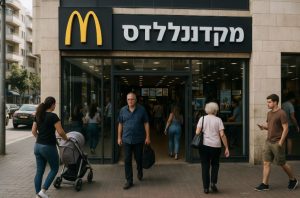
Yes, McDonald’s still operates in Israel, but under direct ownership by the US-based corporation following the 2024 buyback. The company stated it remains committed to the Israeli market and will continue serving customers in the region.
Operational Changes Post-Buyback
- New leadership overseeing Israeli operations
- Greater oversight on local marketing and CSR initiatives
- Emphasis on neutral branding to avoid political interpretations
While operations continue, McDonald’s now faces the ongoing challenge of balancing local expectations with global brand responsibility.
What Role Did Settlements Play in the McDonald’s Backlash?
The issue of Israeli settlements in occupied territories has always been contentious. Padan’s refusal to expand McDonald’s into West Bank settlements in 2013 was a key flashpoint that foreshadowed the larger controversy of 2023 and 2024.
Settler Reactions and Public Protest
- Protests emerged after McDonald’s won a tender at Ben-Gurion Airport in 2019
- Settlement leaders opposed the move, calling it politically biased
- The Yesha Council labelled McDonald’s as anti-Israeli
The tensions over settlements compounded the brand’s problems when the 2023 conflict began, as old criticisms resurfaced and fuelled the global boycott movement.
Does McDonald’s Support Israel?
No, McDonald’s Corporation does not officially support the Israeli government. It operates in Israel like it does in over 100 other countries, through franchises or direct ownership, without political alignment.
However, public perception tells a different story. The actions of a local franchisee, even when not endorsed by the parent company, were enough to trigger global outrage. McDonald’s has since taken steps to manage its reputation and reposition itself as a politically neutral entity.
Conclusion
The McDonald’s-Israel controversy illustrates how global brands are increasingly held accountable not only for their direct actions but for the actions of their associates. It raises important questions about franchising, brand governance, and corporate ethics.
While McDonald’s continues to deny direct involvement in the Israeli franchisee’s decisions, the brand’s image has been affected worldwide. Its decision to buy back all Israeli outlets was not just a business move but a calculated effort to recover trust.
As consumers become more informed and socially conscious, companies must tread carefully, ensuring their local partnerships reflect the brand values they aim to uphold globally.
Frequently Asked Questions
What triggered the McDonald’s boycott in 2023?
The boycott was triggered after McDonald’s Israeli franchisee offered free meals to Israeli soldiers during the Israel-Gaza conflict, leading many to perceive the company as politically involved.
Did McDonald’s publicly support Israel?
No, the parent company denied any political stance and clarified that the actions were independently taken by the Israeli franchisee.
Is McDonald’s still operating in Israel?
Yes, McDonald’s continues to operate in Israel, but under direct ownership following the 2024 buyback of its franchise.
Who was responsible for offering meals to soldiers?
Omri Padan, the CEO of McDonald’s Israeli franchisee Alonyal Ltd., made the decision to offer free meals to the military.
Why did McDonald’s buy back its Israeli restaurants?
The buyback was a strategic move to regain control of brand messaging and reduce reputational damage after the global boycott.
Has McDonald’s faced political controversies before?
Yes, the brand has previously been involved in controversies, particularly around its operations in Israeli settlements.
What was the impact of the boycott on McDonald’s?
The company reported weaker sales in several international markets, and the controversy significantly affected its brand image.

